Preschool-Kindergarten
A well-balanced curriculum to nurture caring, independent, and internationally-minded individuals.
The curriculum implemented at Enishi International School is designed to nurture children in their early years of development. Through a range of educational activities, we encourage the skills that are essential to children becoming healthy, independent and curious individuals. Emotional and social well-being are key foundations that ensure a child’s future success. Children are encouraged to communicate their needs and opinions and are introduced to varied topics which allow for the children to have the ability to speak in various situations. Furthermore, by providing opportunities for children to explore, make connections, and discover the world around them, children play an active role in their own education. This develops the mental foundation and attitude towards learning that will help them overcome academic challenges as they move forward in their school life.
CLICK HERE to learn more about the PYP programme from International Baccalaureate
Timetable
Arrival
Circle Time
Outdoor Play
Snack
Writing
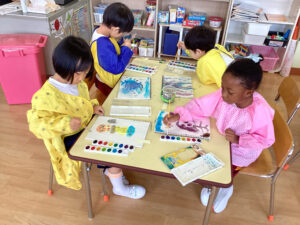
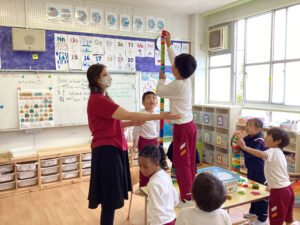
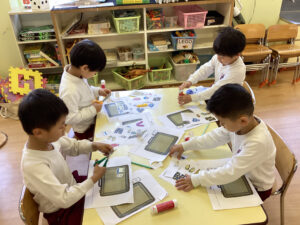
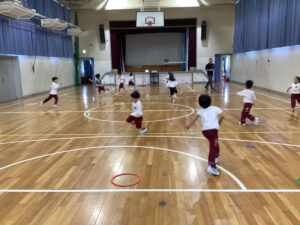
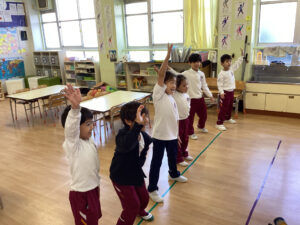
Preschool is a class for children from 3 to 4 years old. At this age, children become more independent both physically and socially. They are more confident in experimentation and begin to take pride in their creations. Their others awareness continues to develop to include recognizing others’ feelings. Most students will be able to take responsibility for their own belongings and help each other in the classroom.
As the first step into PYP, we begin to introduce the principles of IB expressed in the learner profile. Learning is achieved through play, guided centers, songs, and stories. We encourage children in their natural roles as inquirers and help them take ownership of their learning. While academic learning is important, social development at this age affects how children will interact with others for the rest of their lives. In this class we strive to help students learn how to develop healthy relationships with others. We focus on learning respect, responsibility, and conflict resolution.
Pre-K is a class for children from 4 to 5 years old. During this stage of development students begin to be able to focus for longer periods of time, they are able to follow more challenging instructions. Social and emotional development continues to be a focus as students test boundaries and continue expanding in their others’ awareness. We place a strong emphasis on being responsible for oneself in an effort to gain problem solving skills and develop meta-cognition. Students also continue to develop as inquirers.
We encourage students to ask questions to build as many connections to the world around them in order to understand it better. Play is purposeful and planned around concepts that are foundational for literacy, mathematics, critical thinking,problem solving, and a host of other skills.
In Pre-K, students start the Singapore math curriculum. This continues all the way through grade 5, providing a deep elementary math foundation.
Students use Speed Phonics 1 books to develop their phonics and decoding skills. Students with a sufficiently high reading level can be introduced to Raz Kids, which they will continue to use in Kindergarten and Primary School.
Kindergarten is a class for children from 5 to 6 years old. Kindergarten builds on Preschool and Pre-K, with an emphasis on socio-emotional development as well as skills that build a strong foundation for future learning. Students explore literacy, math, science, social studies, and art through the
transdisciplinary units of the PYP. The units develop according to student interest with the teachers allowing more autonomy and student choice. There are plenty of opportunities for students to excel and develop academic skills, particularly in reading and math. These skills are built through hands-on and fun learning engagements. Expectations for Kindergarteners are high and those that are ready are encouraged to build on their skills beyond the requirements of our curriculum standards.
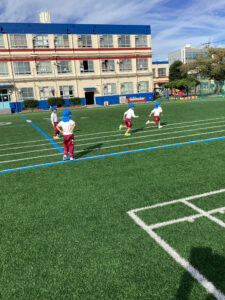
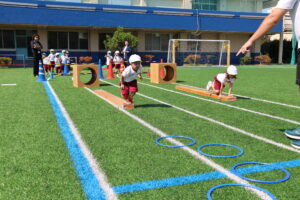
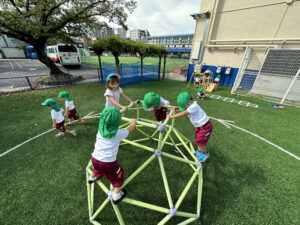
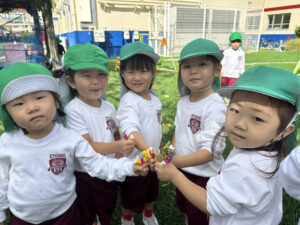
Lunch
Art
Centers
Math
Dismissal
Preschool, Pre-K and Kindergarten students have PE lesson every week.
Pre-K and Kindergarten students have a field trip every month.


